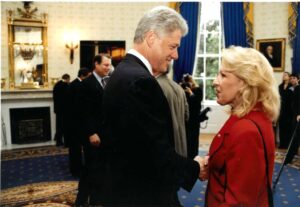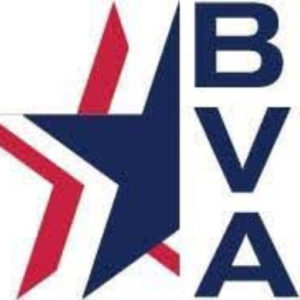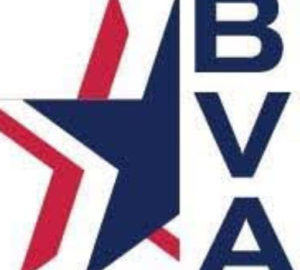
Celebrated annually in March, Women’s History Month is a time to commemorate and celebrate the contributions of women to culture, society, and the advances of civilization, recognizing their work on behalf of causes such as BVA. The Association’s members and their families need look no further than Elizabeth “Liz” Carr, a blinded veteran from Glen Oaks, New York, for a model of dedication, grace, and professionalism as she worked in support of her fellow veterans.
Liz was elected unanimously on one voice vote as BVA’s 31st National President on August 23, 1997, at the Association’s 52nd National Convention in Reno, Nevada. Prior to her election, Liz served as National Treasurer (1991-93), National Secretary (1993-95), and National Vice President (1991-93), in addition to serving in various capacities in the New York Regional Group.
Born in New York City, Liz is a Vietnam-era veteran of the Air Force. She was blinded from a severe head injury that occurred during a training exercise. The accident left her totally blind in one eye and with 20/2800 in the other.
Like many others she later had as role models, Liz never gave up, fighting back and reclaiming her rightful place in the professional world and society. She earned a Bachelor’s Degree from Long Island University and two Master’s Degrees, one in Public Administration and the other in Health Care Administration, from New York University. She graduated with honors from both graduate programs.
Upon completion of her higher education goals, Liz became the first legally blind person ever hired by the New York State Education Department Office of Professional Discipline. At the time of her election as National President, Liz was serving as an Investigator within that Department.
“I know I will probably lose my sight entirely at one point in my life,” Liz said, while running for the Association’s highest office. “Thanks to my work with BVA, I now have the confidence and insight to overcome this loss and see blindness not as a hardship but instead as a challenge.”
As she began her tenure, the challenge of blindness, not its hardships, was precisely the message Liz also said she hoped to carry to both blinded veterans and the general public for the next two years. Notwithstanding the large shoes she left to fill in the years following, It was a message that has been widely adopted and shared by BVA officers and members alike.


